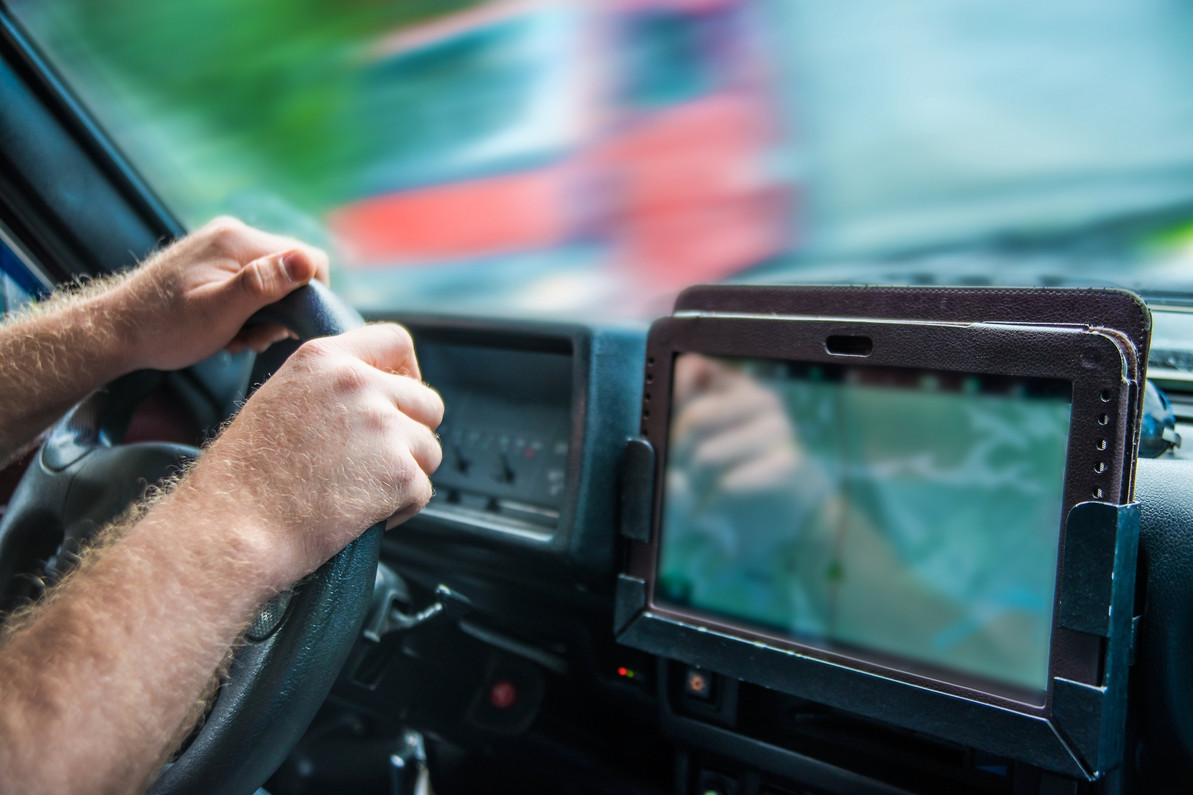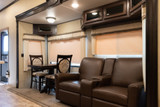How Could a Truck GPS Benefit You? | RecPro
Have you ever noticed that your phone's navigation apps (Google Maps, Apple Maps, Waze, etc.) take less than optimal routes for recreational vehicles? Half the time, they don't take the optimal route for any vehicle. One too many "shortcuts" through crowded downtowns or muddy unpaved roads erode what little trust we had started to build for our ever-present pocket navigator.
Shortfalls In Phone-Based Navigation
Though our phones can be invaluable for helping us with hands-free navigation of our passenger cars, traveling with a larger trailer or coach RV can drastically change which routes are appropriate. Route planning is something that freely-available navigation software, regardless of brand, continues to have issues with.
With a phone GPS app, there is a distinct lack of route optimization to account for steep uphill or downhill grades, congestion, common trucking routes, sharp turns, dirt roads, restricted sight lines, weight-limited roads, or other things of this nature. All of this information is pertinent to someone driving or towing an RV, and having access to the data can improve the quality of your trip from several different perspectives.
Let's use Waze, Google Maps, and Apple Maps as examples here, three fairly common navigation apps across phone operating systems. None of these options allow you to input your rig's specifications (Length, Width, Height, Weight), which illustrates that these applications can not tailor your route to avoid the various hazards our road systems can oftentimes pose to RVs & trailers. There are options to avoid toll roads, highways, or ferries, but these three options represent a relatively meager array of filtering choices. Numerous conditions that matter to you as an RV driver/hauler are not described on this short list.
Consequences Of Inadequate Route Planning
Here's a hypothetical situation: You're driving a Coach RV through a steep portion of the Rockies. If you were using your phone as a navigator, it would be treating you like you were driving a passenger car. For all it knows, you could be in a 2400lb Toyota Yaris. Why does this matter?
 Passenger cars don't have an issue with braking over long periods; they can handle the driver leaning on them for the entirety of the descent of a hypothetical mountain pass. Not cheap from a consumable parts perspective, but the risk of losing braking ability due to brake fade is less common. Though brake fade still exists as a phenomenon, it was a much larger issue when drum brakes were the standard. Disc brakes are less susceptible to fading to the point of failure and incidentally are what is installed on most cars/trucks assembled within the last 15-20 years.
Passenger cars don't have an issue with braking over long periods; they can handle the driver leaning on them for the entirety of the descent of a hypothetical mountain pass. Not cheap from a consumable parts perspective, but the risk of losing braking ability due to brake fade is less common. Though brake fade still exists as a phenomenon, it was a much larger issue when drum brakes were the standard. Disc brakes are less susceptible to fading to the point of failure and incidentally are what is installed on most cars/trucks assembled within the last 15-20 years.
All this being said, it's still not a great idea to apply the brakes constantly while descending a steep grade. Things tend to get toasty warm in the brake system. In this instance, we are referencing hydraulic brakes because if your rig is large enough to be equipped with air brakes, there is no ability to brake continuously. Your service brakes run out when your compressed air runs out.
Hit The Brakes, Jake!
Standing on your service brakes will eventually cause you to drain your air tanks completely and not only lose the ability to use the service brakes but, (if your air pressure falls below a certain threshold), your emergency/parking spring brakes may engage (if equipped). If this were to happen at speed, it would put you at risk of locking up an axle and potentially losing control of the vehicle. Not to mention, brake components are expensive to replace, and using the service brake system to control speed on steep descents will wear them considerably.
By making the seemingly inconsequential decision to use the phone as a navigator for your RV, you may find yourself needing to employ significantly more active driving measures to arrive safely at your destination than if a truck GPS had planned the route. Active driving measures for this example include: Needing to downshift or utilize the engine/Jake brake to keep the speed down on steep descents, maybe even needing to use the service brakes on top of that to manage speed safely.
Enjoy Some Peace Of Mind With A Truck GPS
Those who have had enough of the foibles of phone navigation may want to consider investing in a "Truck GPS or Commercial GPS" The name is misleading, but long-haul semi-drivers traditionally use these GPS units. They take into account the nature and characteristics of large & long vehicles and utilize that information in a way that your phone's navigation applications cannot, or rather, choose not to.
If you made the same trip using the Truck GPS (which happens to know that you have a long wheelbase, are slow-accelerating & incredibly heavy), it would likely route you on a different road with shallower grades & less traffic instead of, say, the most direct route over the steepest part of the pass, to reduce wear on the vehicle's systems and increase fuel economy. This was just an example: you can program in your preferences and customize your priorities (speed vs. fuel economy vs. congestion avoidance, etc.) It leaves you plenty of room to play with finding the right balance.
Here Are Some Examples Of Common Units On The Roads Today.
Here are a few currently available Truck GPS units for you to check out. Granted, these are not necessarily cheap pieces of tech by any stretch of the imagination, but the benefits & peace of mind they provide you on long journeys outweigh the entrance cost.
Garmin Dezi Series
Rand McNally TND750
TomTom Trucker 620
RV Drivers Can Benefit Significantly From A Truck GPS
Less stress involved in planning a route; no more turning in the dark only to find out that you are overweight for the road, too wide, the road isn't paved, or that the road no longer exists. Drivers can be assured that their route will get them to their destination without quite as many surprises compared with relying on a phone for navigation. Additionally, pre-planning with a GPS will avoid costly mistakes such as wrong turns or getting lost. Drivers can get to their destination faster and easier than ever before and can plan routes around the lowest-cost fuel stops so drivers can save money on their trips.
Let us know down below in the comments if you have any experiences you would like to share regarding commercial GPS systems and how they differ from phone-based ones!
Recent Posts
-
Trailer Wiring Guide: How to Wire Your Trailer for Safety and Efficiency
Table of Contents 1. Common Types of Trailer Connectors 2. Trailer Wiring Diagrams: Color Codes and …Aug 20th 2024 -
How to Keep Your Pets Safe While Camping
RVing and camping are a great getaway from the hustle and bustle of work and the city and the day …Jul 2nd 2024 -
Why Replace Your RV Furniture?
You may wonder when is the best time to replace your RV furniture. There is no one right answer t …May 20th 2024 -
Are RV Electric Fireplaces Safe
Being Safe in Your RV with an Electric Fireplace Safety is always going to be one of your highes …Apr 25th 2024 -
How To Install An RV Fireplace
A Warm Addition to Your On-Wheels: The DIY RV Fireplace Installation Guide Many RV enthusiasts a …Apr 25th 2024 -
How To Keep RV Furniture From Peeling
Peeling RV Furniture | Why it Peels and How to Stop it Your RV furniture is a point of pride on …Apr 25th 2024







